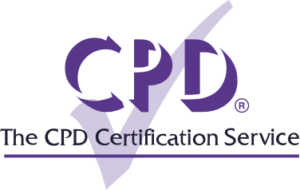In this Pest Control Workers CPD Guide
Why do Pest Control Workers need CPD?

A pest control worker is a professional who specialises in identifying, preventing and eradicating pests such as insects, rodents and other unwanted animals from residential, commercial or industrial properties. They may use a variety of methods such as traps, baits and pesticides to control and eliminate pests.
Some of the most common types of pest infestation that affect people in the UK include:
- Rats.
- Mice.
- Bed bugs.
- Cockroaches.
- Wasps.
- Ants.
A pest infestation can be dangerous to humans because pests such as rodents, cockroaches and mosquitoes can spread diseases, contaminate food and damage property. Additionally, some people may have allergic reactions to pest droppings or bites which could be critical to human health. It’s important to take preventative measures and address infestations promptly to avoid potential health risks; but if a pest infestation is identified, a pest controller is needed to eradicate the problem.
What our customers have to say
Dan King
Mobilisation, Training & Performance Manager

Sophie Aiken
HR Manager

Harriet Lee
Retail Recruitment Manager

What CPD courses do Pest Control Workers need?
As a pest control worker, you may be instructed to attend a wide range of environments to eradicate a pest problem. Some of these environments can present their own dangers which many of our courses can prepare you for. There are many courses on our website that are well suited to a pest control worker, but we have listed some of our most suited courses below.
Pest Control – this course will give you a detailed insight into what a pest is, the types of pests, how to identify signs of pests and the types of pest control. You will explore the five main stages of pest control, which are avoid, block, detect, respond and recover. You will also look at some dos and don’ts of pest control and the implications of having pests in and around food businesses.
Asbestos Awareness – pest control workers may need to work in areas that potentially pose a risk of asbestos. This is because rodents and insects can often get into small, restricted spaces where asbestos may be present. This asbestos course will look at the Control of Asbestos Regulations 2012 relating to asbestos safety, why asbestos was banned, and the danger to people’s health.
Assessing Risk – this course covers the legal health and safety requirements, the main pieces of health legislation, and how to effectively assess risk to reduce it. It includes the nine principles of preventing risk and how to identify risk.
Confined Spaces – this course informs you of how to protect yourself and other workers who work in confined spaces. Pests are often found in confined spaces so understanding the dangers and hazards associated with them will support you in risk assessing prior to embarking on the work.
COSHH Awareness – Control of Substances Hazardous to Health legislation is important for pest control workers who use different chemicals in their work. It will explore the regulations surrounding COSHH, health risks, hazard symbols, and the steps to reduce risk.
Hoarding Awareness – pest control can be a problem in hoarding environments. In the UK 2%–5% of the population suffer from hoarding, and severe cases can have a great impact on many people. Awareness of hoarding can help pest control workers to prepare for the environments they may be working in.
Ladder Safety – pest control workers can tend to work at a height to eradicate wasp infestations. This course will explore why ladders are dangerous and the hazards associated with their use.
Personal Protective Equipment (PPE) – Personal Protective Equipment (PPE) is an important area for workers to have knowledge on. This course will look at what the definition of PPE is, the different types of clothing and the regulations surrounding PPE. You will also learn when PPE should be used and why it should be used.
Download our CPD trackerA guide to CPD for Pest Control Workers
According to a report by the British Pest Control Association, it is estimated that pests affect around 1 in 5 households and businesses in the UK. This equates to approximately 12.5 million homes and businesses experiencing pest infestations. Pest control workers use a variety of methods to get rid of pest infestations, such as traps, baits and pesticides. The specific method used depends on the type of pest and the severity of the infestation. The length of time it takes to get rid of a pest infestation also varies depending on these factors, but pest control workers typically aim to resolve the issue as quickly and efficiently as possible.
To become a pest control worker, you will typically need to complete a qualification in pest management as well as possess some personal skills such as good communication, problem-solving skills, and strong attention to detail. Additionally, you may need to obtain a licence from the British Pest Control Association (BPCA), which is the UK association for the public health pest management industry. They support over 700 member companies in the pest management sector, and this number is ever growing. They have a code of practice that members must abide by to show that they are providing an adequate service. Continuing professional development can help you to meet the code of practice requirements to show that you are using correct practice to uphold economic, social and public health.
CPD certificates
Once you have chosen a CPD course on our website and completed your enrolment you will get access to the CPD course straight away. All our courses are completed online so there is no need to travel to a college destination or try to fit in your learning during a working day. You can complete your course at any time of the day from the comfort of your own home to fit around your work and lifestyle. Most people do not require any support when working through our courses, but if you find yourself needing assistance, you can contact us for support.
When you have completed your course, you will gain a CPD certificate. This certifies that you are competent in the subject area, and it can be used to evidence the CPD that you have completed. Your CPD certificate can be downloaded online straight to your computer or posted to you.
Logging CPD hours
Whilst there are no deadlines or timescales that are linked to our CPD courses, you should log the number of hours that you spend on your CPD course to use in your CPD portfolio. Logging your CPD hours is a simple process – you can set a timer when you start and stop working on your course and keep a diary to log your total hours. Many regulators ask for a certain amount of time spent on CPD training, so logging your CPD hours as you go along can make this requirement easier to meet.
Keeping evidence
Your diary of CPD hours can form part of your overall CPD evidence. Keeping evidence of your CPD training is important to refer back to, and to show industry regulators and employers.
As well as your log of CPD hours, the following activities can all count towards CPD training:
- Listening to podcasts related to your industry.
- Working with a mentor.
- Attending industry webinars.
- Conducting reading on key subject areas linked to your work.
- Job shadowing managers in your workforce.
All of the CPD training activities listed above can form part your CPD portfolio as CPD evidence.
Renewing CPD certificates
All industries have developments and legislative changes over the years which can cause knowledge to become outdated. Due to this, it is important to renew CPD certificates every two years to ensure that your knowledge is up to date. We send email reminders when access to your course is coming to an end and when your course may need to be renewed. You can simply re-enrol on the course with us to refresh your knowledge and learn updates to the subject area. Alternatively, you may like to embark on a higher level course to increase your knowledge further and improve your skills in your work.
























